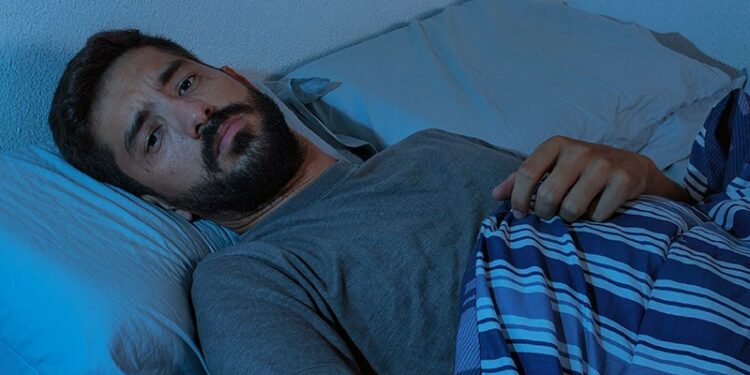TOPLINE:
Low-dose mirtazapine shows a clinically relevant effect in reducing the severity of insomnia at 6 weeks, but not at 12 weeks or beyond. However, low-dose amitriptyline shows a smaller, nonclinically relevant effect at 6 weeks.
METHODOLOGY:
- Researchers conducted a pragmatic, randomized, placebo-controlled, phase 3 trial, in collaboration with 64 general practices in Amsterdam, to evaluate the effectiveness of low doses of the antidepressants amitriptyline and mirtazapine in treating patients with insomnia disorder over 16 weeks.
- They included 80 patients (age, 18-85 years) with moderate insomnia disorder, experiencing sleep maintenance or early-morning awakening issues, who had insufficient response to nonpharmacological treatments from January 2019 to June 2021.
- They randomly assigned patients in a 1:1:1 ratio to receive either 7.5 mg/d mirtazapine (n = 27), 10 mg/d amitriptyline (n = 26), or placebo (n = 27) for 16 weeks, starting with one tablet per night 2 hours to 30 minutes before bedtime.
- The primary outcome was the severity of insomnia assessed using the Insomnia Severity Index (ISI) at baseline and at weeks 6, 12, 20 and 52, with the 6-week ISI score being the primary endpoint.
TAKEAWAY:
- Compared with placebo, mirtazapine led to a significant reduction in ISI scores at week 6 (mean difference, −6.0 points; 95% CI, −9.0 to −3.0), which was close to clinical relevance.
- A significantly higher proportion of patients in the mirtazapine group than those in the placebo group showed clinically relevant improvement (52% vs 13.6%) or recovery (56% vs 14.3%) at week 6.
- Amitriptyline led to a significant but smaller reduction in ISI scores at week 6 (mean difference, −3.4 points; 95% CI, −6.3 to −0.4), which was not clinically relevant, compared with placebo, and no differences were observed at later timepoints.
- Mirtazapine was generally tolerated, but side effects and discontinuation of the treatment were more common, though not statistically significant, in the mirtazapine group than in the placebo group; amitriptyline was well tolerated with no treatment-related adverse events noted.
IN PRACTICE:
“The prescription of off-label low-dose mirtazapine or amitriptyline to patients with insomnia disorder with sleep maintenance problems with a request for daily sleep medication in general practice is not recommended if the aim is to achieve sustained sleep improvement,” the authors wrote. “In cases where quick improvement is desired, off-label low-dose mirtazapine might be considered for a period up to 6-12 weeks. Monitoring through follow-up consultations is important for evaluating side effects vs intended effect and timely discontinuation of treatment,” they added.
SOURCE:
This study was led by Mette Bakker, MD, of the Amsterdam UMC at the Vrije Universiteit Amsterdam in Amsterdam, the Netherlands. It was published online on January 15, 2025, in British Journal of General Practice.
LIMITATIONS:
The sample size of this study was small; only 51% of the targeted number of patients could be included due to COVID-19 restrictions. This limited sample size may have influenced the results at later time points and the per-protocol analysis and restricted the ability to conduct planned subgroup analyses.
DISCLOSURES:
This study was supported by ZonMw, the Netherlands Organization for Health Research and Development. No relevant conflicts of interest were disclosed by the authors.
This article was created using several editorial tools, including AI, as part of the process. Human editors reviewed this content before publication.
Source link : https://www.medscape.com/viewarticle/low-dose-mirtazapine-improves-insomnia-symptoms-short-term-2025a10001db?src=rss
Author :
Publish date : 2025-01-21 10:11:56
Copyright for syndicated content belongs to the linked Source.














